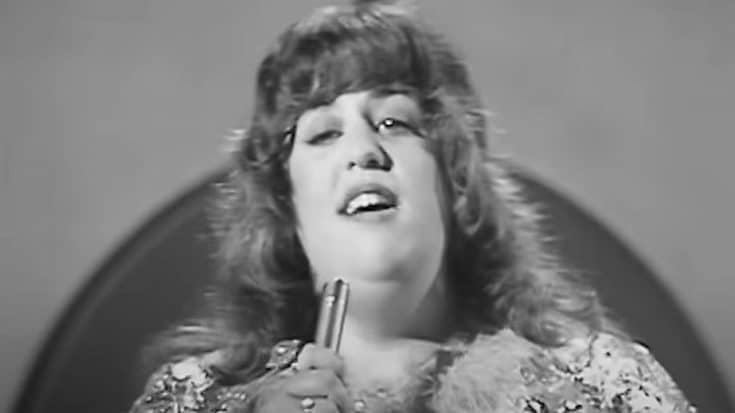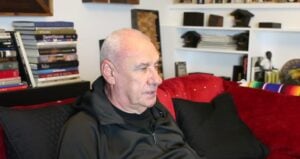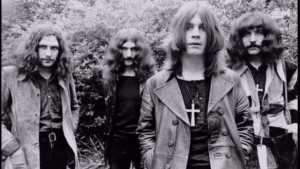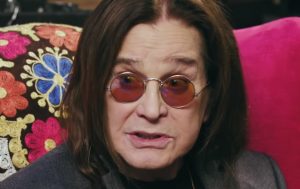The Events In The Final Moments Of Cass Elliot’s Life

via Cass Elliot / Youtube
Throughout her short but impactful life, Cass Elliot was known for her amazing performances and remarkable musical talent that touched and entertained many. In the ’60s, she became a star and the standout personality in one of the iconic bands of the decade, the Mamas and the Papas. The group, with its four members, merged a hippie outlook with folk music and exceptional vocal harmonies, producing timeless hits such as “Monday, Monday,” “Creeque Alley,” “Dedicated to the One I Love,” and “California Dreamin’.” Frequently, the pure and emotional sound of “Mama” Cass Elliot’s voice stood out above the music and the singing of her fellow band members.
When the Mamas and the Papas broke up in the early ’70s, it was expected that Elliot would have a successful solo career. In fact, she had already had a hit of her own while still in the band with “Dream a Little Dream of Me.” While some of Elliot’s solo efforts were successful, others were not. Her life was tragically cut short when she passed away in July 1974 at the young age of 32. This brief write-up provides a glimpse into how the once “Mama” Cass Elliot spent her final year alive.
View this post on Instagram
Cass Elliot’s Transformation and Exploration of New Music Styles
Cass Elliot brought her album “The Road is No Place for a Lady” to the world in 1972. Even though this wasn’t her debut as a solo artist, it was her first sans the Mamas and the Papas, following “People Like Us” LP in 1971. However, the album didn’t make it to the Billboard 200 albums chart, causing Elliot to reconsider her musical direction in 1973.
Bobby Dunhill, her manager from the Mamas and the Papas days, was replaced by Allan Carr, who was known for his love of flamboyant, classy and highly theatrical show culture. In addition to launching Broadway musicals, he managed the careers of older audience favorites such as Tony Curtis, Herb Alpert, and Ann-Margret. He guided Elliot transition from youth-oriented rock, pop, and folk to a more mature audience. Elliot liked the idea of this transition, as she had a strong liking for classic crowd-pleasing songs. Her prominent solo success was the 1968 cover of “Dream a Little Dream of Me,” which reached 12th position. Allan and Elliot collaborated and built a fresh image for her, positioning her as a cabaret artist and singer of powerful ballads.
Cass Elliot’s Hometown Honors Her
“Cass Elliot,” known to many as her stage name, was actually named Ellen Naomi Cohen at birth in 1941. Born and raised in Baltimore’s Forest Park area, she dropped out of school two weeks before graduation in 1959. Following this, she moved to New York City to chase her dreams in the performing arts. Even after she left her birth city, she achieved so much that it caught the attention of Baltimore’s mayor, William Donald Schaefer. In her honor, he established Cass Elliot Day, which was filled with festivities celebrating the singer.
On August 15, 1973, the city was lively with parades, classic car shows, clowns, and local bands all added to the joy of the day. Taking part in the celebration, Elliot, who had recently been treated for a leg injury at Baltimore’s Sinai hospital, attended all events along with her mother.
Highlights from the day, including visiting the USS Constellation battleship and Charcoal Hearth restaurant, were captured on camera for a later TV special. Cass Elliot Day concluded with a special graduation ceremony where Elliot was personally presented her high school diploma by Mayor Schaefer – dressed fittingly in the traditional cap and gown.
View this post on Instagram
Cass Elliot’s Effort to Change Her Image
In a bold move to shed her “Mama Cass” identity, Cass Elliot released the album “Don’t Call Me Mama Anymore” in September 1973. This live album, capturing her performance at the Chicago nightclub Mr. Kelly’s, showcased Elliot in a new light. She performed songs like “Extraordinary” from the musical “Pippin,” a mix of classic torch songs, and a fresh take on “Dream a Little Dream of Me.” Despite her efforts, the album did not make it onto the Billboard album chart.
Accompanying the album’s release, Elliot appeared in a CBS TV special also named “Don’t Call Me Mama Anymore,” although it didn’t win audience favor. Critic James Brown of the Los Angeles Times harshly reviewed the special, saying, “‘Mama’ is the worst hour of television to hit the air in many years. It has all of the disaster elements.” He warned, “If Cass doesn’t carefully avoid such future television misfires, they not only won’t call her mama, they won’t call her, period.” The show featured unique moments like Dick Van Dyke and Elliot emulating Laurel and Hardy in a “Romeo and Juliet” scene, and Joel Grey singing “Those Were the Days” with Elliot, both dressed as Archie and Edith Bunker from “All in the Family.” Alongside these guests, Michelle Phillips, Elliot’s former bandmate, and Bruno the Bear made appearances, marking this show as Elliot’s singular foray into variety TV specials.
Cass Elliot Became a Familiar Face on TV
Even though the “Don’t Call Me Mama Anymore” project didn’t catapult Cass Elliot into variety show stardom, she remained a frequent presence on television during the 1973-1974 season.
Elliot provided her voice to an animated version of herself in an episode titled “The Haunted Candy Factory” from “The New Scooby-Doo Movies,” aired in the fall of 1973. Additionally, she was featured for a week in November 1973 on the panel of the beloved daytime game show “Match Game.” Elliot didn’t stop there; she was also a guest on several episodes of “The Mike Douglas Show,” “The Tonight Show Starring Johnny Carson,” and “The Merv Griffin Show.” Venturing into acting, she played a notable role in the 1973 TV movie “Saga of Sonora,” a musical set in the Old West. In this production, Elliot not only acted but performed as the character “Mrs. James,” showcasing her versatility and continuing appeal to television audiences.
View this post on Instagram
Cass Elliot’s Health Scares on “The Tonight Show”
Cass Elliot was a regular on “The Tonight Show Starring Johnny Carson,” appearing and sometimes even taking on the role of a guest host more than 20 times. Her presence was especially noted in 1973 and 1974, when she had some scary health incidents on the show.
In one instance, after the show, Cass took a fall due to a sewer grate that wasn’t set right. She had to be taken to the hospital to check if any bones were broken.
Not long after, she faced another scare. Just before she was set to go on the show, she fainted. “I had a very bad headache that day and I hadn’t been able to eat anything,” Cass later said during her last visit to “The Tonight Show” on May 7, 1974. “My blood sugar level dropped or something and I just sort of tipped over.” This incident resulted in a four-day hospital stay, and it was talked about in newspapers across the U.S. and Europe.
Cass Elliot’s Journey to Sobriety
Famous in the 1960s, Cass Elliot was known not just for her music, but also for her heavy use of drugs and alcohol. By 1973, she decided to turn her life around. “I overdid it — drugs, booze, the lot. Staying out all night, just being totally undisciplined,” she admitted to the Daily Express, as recounted in the biography “Dream a Little Dream of Me.” “I’m not that self-destructive anymore, because I have a lot of things to live for now.” She worked with a therapist to help her start a healthier lifestyle and reportedly quit using hard drugs such as heroin or cocaine.
According to her ex-husband Donald von Wiedenman in the biography, Cass sometimes smoked marijuana to unwind and might have a drink if she wasn’t using stronger drugs. However, during the last weekend of her life in 1974, she did not drink at her parties, and an autopsy confirmed there were no drugs or alcohol in her system when she passed away.
Cass Elliot’s Jingle Recordings for Hardee’s
In the early 70s, Cass Elliot lent her voice to the fast-food chain Hardee’s, recording catchy tunes for their advertisements. She sang phrases like “Hurry on down to Hardee’s, where the burgers are charco-broiled.” This line even became Hardee’s well-known slogan and echoed on TV and radio, helping Hardee’s grow fast during that time.
Cass Elliot worked with Tupper Saussy, a musician from the band the Neon Philharmonic. The jingles they created were different from each other and played a big part in Hardee’s marketing. Though Elliot’s voice was a key part of these ads, her face never appeared on TV, nor was her name mentioned. This job was important for her because it made sure her voice stayed on people’s radios while she wasn’t releasing any new songs.
Cass Elliot as a Single Mother
Cass Elliot was not only a singer but also a mom. Her daughter, Owen, was born in 1967. Cass was there for Owen throughout her early years, especially after Cass’s marriage to Donald von Wiedenman ended in 1972. Even though Jim Hendricks was initially thought to be Owen’s dad, he wasn’t; Cass kept the real identity of Owen’s father a mystery.
In mid-1974, Cass considered telling her close friend Michele Phillips who Owen’s real dad was once she got back from a concert tour in London. Sadly, she passed away right after her London shows, and never got the chance to share the secret. Eventually, Phillips found out that a musician named Chuck Day was Owen’s biological father.
After Cass passed away, her daughter Owen was welcomed by Cass’s sister, Leah Cohen, and her husband, drummer Russ Kunkel, who raised her as part of their family.
Cass Elliot’s Turn to Classic Entertainment and Her London Success
Cass Elliot, once known as a rock star, transformed into a performer of classic, cozy entertainment. Together with her manager, Allan Carr, she put together a show that included soft pop songs, musical numbers, dance routines, and funny sketches. The show was meant to charm a wide range of people, including older fans, in a cozy theater environment. They brought on board a choreographer, a musical director, and two guys who sang with her, danced, and acted in sketches. Elliot worked on songs like “I’ll Be Seeing You,” a medley of Mamas and the Papas hits including “Dream a Little Dream of Me,” Paul McCartney’s “My Love,” and new pieces that echoed older music styles, with one cheekily titled “Don’t Call Me Mama Anymore.”
This packed show traveled across the United States, stopping in cities like Pittsburgh, Miami, San Francisco, Dallas, Chicago, and Las Vegas. However, the highlight for Elliot was performing at the Palladium in London—a famed and historic venue—in the summer of 1974. There, her show was a hit, selling out the theater over two weeks.
View this post on Instagram
Looking Ahead: Cass Elliot’s Future Projects
Following her successful shows at the Palladium, Cass Elliot saw this as the beginning of a new chapter in her career. She was thrilled with how well those performances were received and viewed them as a stepping stone to further opportunities in entertainment. Her manager, Allan Carr, was bombarded with at least 20 offers for Elliot, including roles in big movies and TV shows on big networks. Plans were even in the works for a small tour following the success of her London gigs.
By the middle of 1974, Elliot was exploring various scripts for TV comedies and movies. She was not only making a shift in her music career from rock and popular tunes to more classic and traditional pop songs but was also looking into producing music. She had already produced a single for the Canadian singer Roberta Sherwood and had lent her expertise to 3’s a Crowd, a Canadian folk group, including helping them get a record deal. Elliot was actively shaping her future, not just in performing but in guiding new talent as well.
Cass Elliot’s Final Celebrations
On July 27, 1974, Cass Elliot gave the last two performances of her two weeks at the cherished London venue, the Palladium. She left a message in lipstick on the dressing room mirror for the next performer, Debbie Reynolds. “Dear Debbie, if they are half as nice to you as they were to me, you will have a great time. Love Cass,” she wrote. With that heartwarming message, she went on to celebrate her success throughout London. Cass attended a birthday party for Mick Jagger in the Chelsea area right after leaving the Palladium, where she was seen enjoying the company of musicians Rod Stewart and Pete Townshend from The Who. Following sunrise, she attended a brunch held in her honor by singer Georgia Brown. Despite her noticeable cough, regular nose-blowing, and raspy voice due to tiredness and performing all night, it didn’t dampen her spirits.
In the late afternoon of that Sunday, though worn out, Cass attended a cocktail party thrown by American TV writer Jack Martin. Later that night, she returned to her temporary London home—an apartment located in the Mayfair area, owned by pop star Harry Nilsson.
The Untimely Demise of Cass Elliot
On the afternoon of July 27, 1974, two of Cass Elliot’s friends arrived at her London home to discuss plans for an upcoming concert tour. They didn’t disturb the resting singer, knowing she needed sleep after a demanding performance schedule and day-long parties. But when the afternoon came and Cass remained asleep, her assistant, Dot McLeod, became anxious. Unfortunately, she found Cass lifeless and cold in bed, leading to the heartbreaking realization that the singer had passed away. Cass Elliot was just 32.
When one of her close friends, Sue Cameron, a writer for Hollywood Reporter, called to confirm the distressing news, Cass’s manager Allan Carr picked up. “Allan said, ‘You’ve got to tell them that she died choking on a ham sandwich.’ There’s a half of a ham sandwich on her nightstand,” Cameron remembered in an interview with People. That comment led to a lasting but incorrect belief that eating had led to Cass Elliot’s death.
However, Allan Carr had preemptively made that statement suspecting her death to be drug-related to avoid negative backlash. But the facts told a different story. The post-mortem examination done by pathologist Dr. Keith Simpson and coroner Gavin Thurston concluded that Cass had passed away due to a heart attack related to her weight. They found weighed down muscles in her heart, but shockingly, no drugs or alcohol content in her system.












